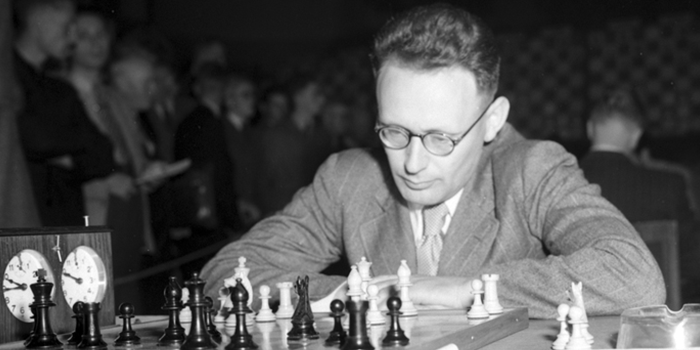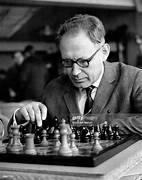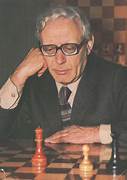 |
 |
 |
 |
Introduction
Mikhail Botvinnik, born on August 17, 1911, in what is now Saint Petersburg, Russia, stands as one of the most influential figures in the history of chess. Renowned for his strategic acumen and rigorous approach to the game, Botvinnik was the first Soviet player to capture the World Chess Championship title, a feat that marked the beginning of an era of Soviet dominance in international chess.
Early Life and Rise to Prominence
Botvinnik's journey into the world of chess began at an early age. He showed promise as a young player and quickly rose through the ranks of the Soviet chess scene. His breakthrough came in 1931 when he won the Soviet Championship for the first time, a title he would go on to capture six times throughout his career.
World Chess Champion
In 1948, Mikhail Botvinnik competed in the World Chess Championship tournament to determine a successor to Alexander Alekhine. Botvinnik emerged victorious, becoming the sixth World Chess Champion. This victory marked the beginning of an era during which Botvinnik would dominate the chess world and hold the World Championship title for a total of three separate periods (1948-1957, 1958-1960, and 1961-1963).
Botvinnik's Approach to Chess
Mikhail Botvinnik was known for his scientific approach to chess. He applied principles of logic, analysis, and rigorous preparation to his games, setting new standards for professionalism in chess. Botvinnik's contributions to chess theory were profound; he developed several opening variations and authored influential books that advanced the understanding of positional play and strategic thinking.
Legacy and Contributions
Botvinnik's impact extended beyond his achievements on the chessboard. He played a pivotal role in the development of the Soviet chess school, mentoring several future World Chess Champions and Grandmasters through his rigorous training methods. The "Botvinnik School" produced a generation of players who would dominate international chess for decades.
Notable Matches and Achievements
Throughout his career, Mikhail Botvinnik participated in numerous memorable matches and tournaments. Some of his notable achievements include:
1. World Championship Matches: Botvinnik successfully defended his title against formidable opponents such as Vasily Smyslov, Mikhail Tal, and Tigran Petrosian, showcasing his ability to adapt and innovate under pressure.
2. Soviet Championships: Botvinnik's dominance in the Soviet Chess Championships, where he won multiple titles, solidified his reputation as the leading Soviet player of his era.
3. Contributions to Chess Literature: Botvinnik authored several influential books, including "Botvinnik's Best Games" and "Achieving the Aim," which remain essential reading for chess enthusiasts seeking to understand his strategic insights and approach to the game.
Personal Life and Influence
Beyond chess, Mikhail Botvinnik was a respected electrical engineer and computer scientist. He contributed to the development of computer chess programs and was instrumental in organizing early computer chess tournaments. Botvinnik's multidisciplinary interests and achievements underscored his intellectual curiosity and innovative spirit.
Botvinnik's Lasting Influence
Mikhail Botvinnik's legacy continues to resonate in the world of chess. His strategic innovations, rigorous training methods, and contributions to chess theory have left an enduring mark on the game. His approach to preparation and analysis set a standard that many players have since emulated, ensuring his place among the greatest chess players and thinkers of all time.
Conclusion
Mikhail Botvinnik's life and career epitomize the intersection of intellect, strategy, and innovation in chess. As the architect of Soviet chess dominance and a three-time World Chess Champion, Botvinnik's legacy remains a source of inspiration for chess players and enthusiasts worldwide. His contributions to chess theory and his role in shaping the Soviet chess school ensure that his influence will endure for generations to come.